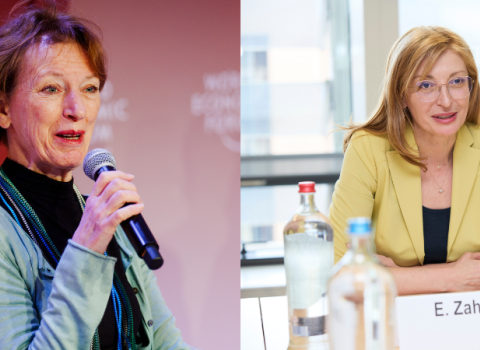Europe’s research funder has awarded its 5,000th grant
The European Research Council (ERC) marked the awarding of its 5,000th grant at a ceremony on Tuesday.
The recipient of the €2 million grant, Iva Tolić, a Croatian cell biophysicist, said it will make a big difference to her professionally. “Experiments in cell biophysics are very expensive. [It will] allow me to establish my new lab in Croatia, hire six team members and buy a state-of-the-art microscope,” she said.
The tributes rolled out for the eight year old institute, with Research Commissioner Carlos Moedas saying the ERC, “Is the best example that investing in excellent scientists pays off.”
Christian Ehler, a German centre-right member of the European Parliament, said, “I see [the ERC] as largely an initiative of the Parliament. I think this is why it [saw] the light of day.”
A member of the ERC governing board, Athene Donald, used the celebration to remind scientists in the UK, which currently holds over one thousand ERC grants worth more than €2 billion in total, of the dangers of voting to leave the EU.
The choice of a Croatian flag-bearer for the day is seen as carrying a wider symbolic message. To date, most ERC award-holders are hosted by institutions in the UK, Germany, Israel, France, the Netherlands and Switzerland. By contrast, researchers in several poorer countries in the East and South of the continent have received virtually no grants.
ERC President Jean-Pierre Bourguignon admits there is a need to widen participation. “Looking to the future, the ERC's mission will remain unchanged - funding frontier research ideas coming from scientists selected solely on scientific quality. But the ERC also has challenges ahead. We wish to see more ERC-funded researches in the newer EU Members States and more female grantees.”
Around 20 per cent of ERC grantees are women. The ERC has tweaked eligibility criteria for those who have children. For example, a scientist with one child who obtained her PhD eight years ago can apply for a starting grant, even though the general rule is that only those who received their PhD between two to seven years ago are eligible.
The ERC began life in 2007 as the first, pan-European research agency with a classic, peer-review system for awarding grants for basic research.
From the start the competitions have been extremely popular and sometimes heavily over-subscribed. The institute has awarded €9 billion to scientists of 66 nationalities working in 626 institutions.
In total 395, or eight per cent, of ERC grant-holders are non-European nationals. Of these 171 are from the US, 41 from Canada, 33 from Russia, 29 Australia, 25 India, and 18 Japan.





 A unique international forum for public research organisations and companies to connect their external engagement with strategic interests around their R&D system.
A unique international forum for public research organisations and companies to connect their external engagement with strategic interests around their R&D system.